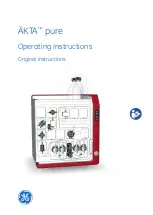
_______________________________________________________________________________________________________________________________
European Safety Systems Ltd.
Impress House, Mansell Road, Acton, London W3 7QH [email protected] Tel: +44 (0)208 743 8880
www.e-2-s.com Fax: +44 (0)208 740 4200
Document No. IS 2463-P Issue E 19-03-10
Sheet 3 of 6
DC units and the 230V AC, 115V AC units have a switching
voltage regulator circuit and therefore the input current level
will decrease slightly as the input voltage in increased and
will increase slightly as the input voltage is reduced. The 12V
units do not have a voltage regulator and therefore their input
current will increase when the input voltage is increased.
Beacon Section
The input current to the beacon section will vary according to
the voltage input level. The current levels shown above are
for nominal input voltage. The 12V, 24V and 48V DC units
have a converter circuit and therefore the input current level
will decrease slightly as the input voltage in increased and
will increase slightly as the input voltage is reduced.
9)
Cable Selection
When selecting the cable size consideration must be given to
the input current that each unit draws (see table above), the
number of units on the line and the length of the cable runs.
The cable size selected must have the necessary capacity to
provide the input current to all of the units connected to the
line.
SAFETY WARNING: If the unit is used at high ambient
temperatures, i.e. over +40ºC, then the cable entry
temperature may exceed +70ºC and therefore suitable heat
resisting cables must be used, with a rated service
temperature of at least 110ºC.
10)
Earthing
Both AC and DC units must be connected to a good quality
earth. The units are provided with internal and external
earthing terminals, which are both, located on the beacon
section of the unit (see figures 2 and 3).
When using the internal earth terminal ensure that the
stainless steel M4 flat washer is between the incoming earth
wire and the enclosure.
When using the external earth terminal a cable crimp lug
must be used. The cable lug should be located between the
two M5 stainless steel flat washers. The M5 stainless steel
spring washer must be fixed between the outer flat washer
and the M5 stainless steel nut to ensure that the cable lug is
secured against loosening and twisting.
The internal earth bonding wire ensures that a good quality
earth is maintained between the sounder section casting and
the beacon section casting.
11)
Cable Glands
The BExDCS110-05D unit has dual cable gland entries which
have an M20 x 1.5 entry thread as standard. Only cable
glands approved for Ex ‘d’ applications can be used, which
must be suitable for the type of cable being used and also
meet the requirements of the Ex ‘d’ flameproof installation
standard EN60079-14:2008 / IEC60079-14:2007.
When only one cable entry is used the other one must be
closed with an Ex ‘d’ flameproof blanking plug, which must be
suitably approved for the installation requirements.
For combustible dust applications, the cable entry device and
blanking elements shall be in type of explosion protection
increased safety "e" or flameproof enclosure "d" and shall
have an IP 6X rating according to EN60529:1992.
SAFETY WARNING: If the unit is used at high ambient
temperatures, i.e. over +40ºC, then the cable entry
temperature may exceed +70ºC and therefore suitable heat
resisting cable glands must be used, with a rated service
temperature of at least 110ºC.
12)
Cable Connections
The combined sounder beacon unit BExDCS110-05D has
separate printed circuit boards in the sounder and beacon
sections. The terminals for the sounder are on the printed
circuit board in the sounder section and the terminals for the
beacon are on the printed circuit board in the beacon section
(see figures 4&5 and 6&7). See section 7 of this manual for
access to the enclosure and the wiring diagrams at the end of
this manual.
The sounder and beacon sections can be wired to the same
input supply so that they operate simultaneously or they can
be wired to separate input supplies so they can be operated
independently (see diagrams of pages 5 and 6 of this
manual). If the sounder and beacon sections are connected
to the same input supply, the incoming cables should be
connected to the input terminals on the beacon board and the
two connecting wires, that are supplied with the unit, should
be used to link the supply from the interconnecting terminals
on the beacon board down to the supply terminals on the
sounder board.
SOUNDER SECTION CONECTIONS
On the AC units a two-way terminal block is provided for the
live and neutral mains supply wires and a three way terminal
block is provided for linking the second and third stages, (see
figure 7). On the DC units a four way terminal block is
provided for +ve and –ve supply input and second and third
stage modes of operation, (see figure 6).
A single wire with a cross sectional area of up to 4mm² can
be connected to each terminal way or if an input and output
wire is required two 2.5mm² wires can be connected to each
terminal way. When connecting wires to the terminals great
care should be taken to dress the wire so that when the
beacon section is inserted into the chamber the wires do not
exert excess pressure on the terminal blocks. This is
particularly important when using cables with large cross
Internal Bonding Wire Terminal
Internal Earth Terminal
2 off M20
Cable Entries
Figure 3

























